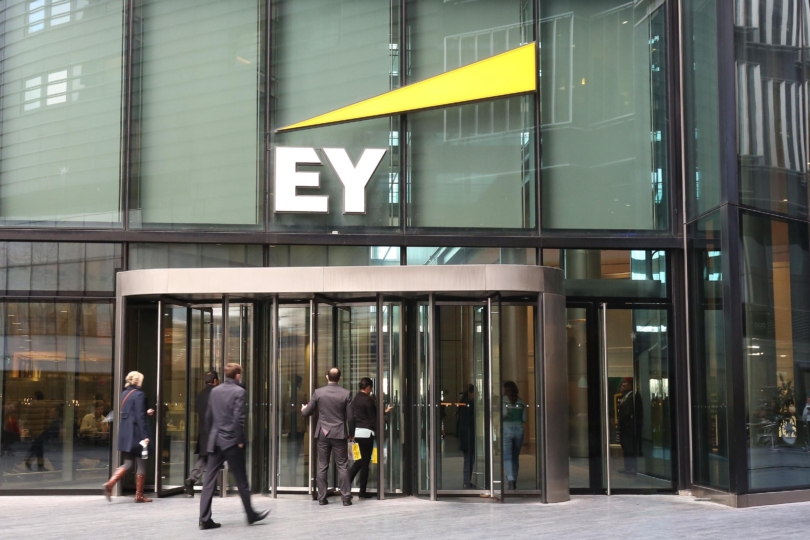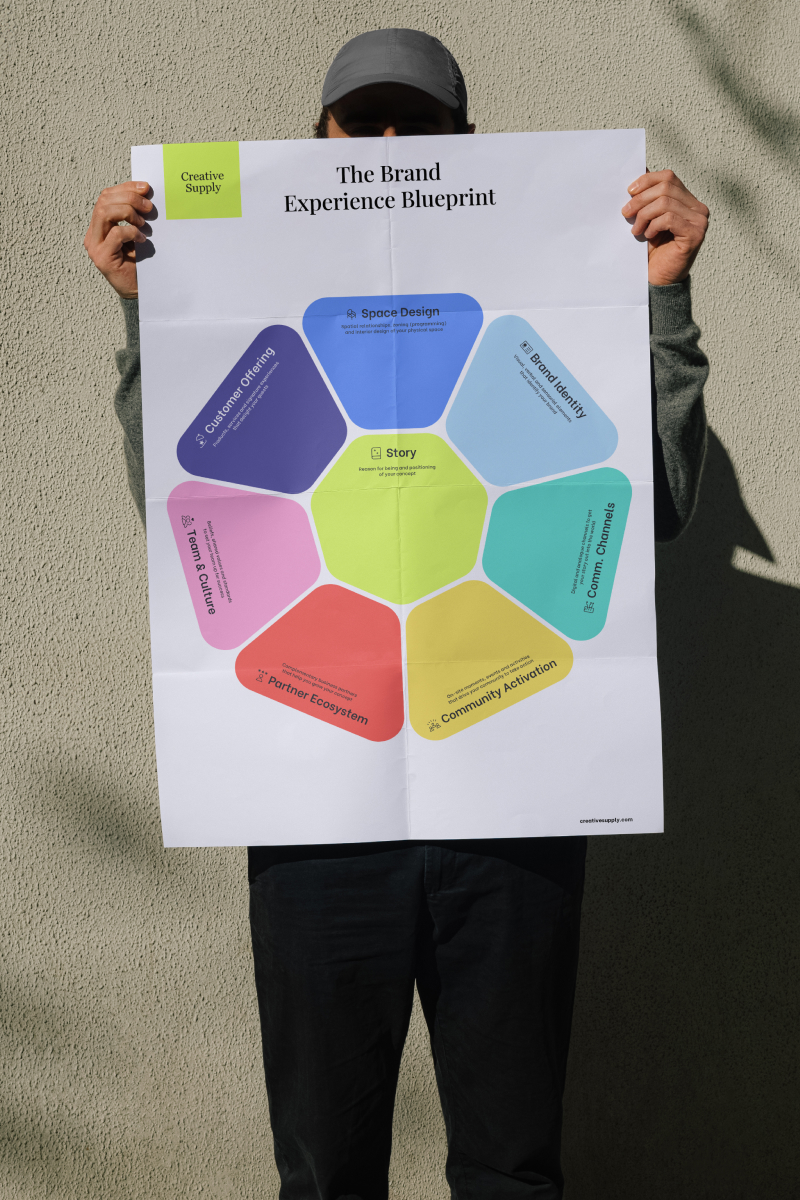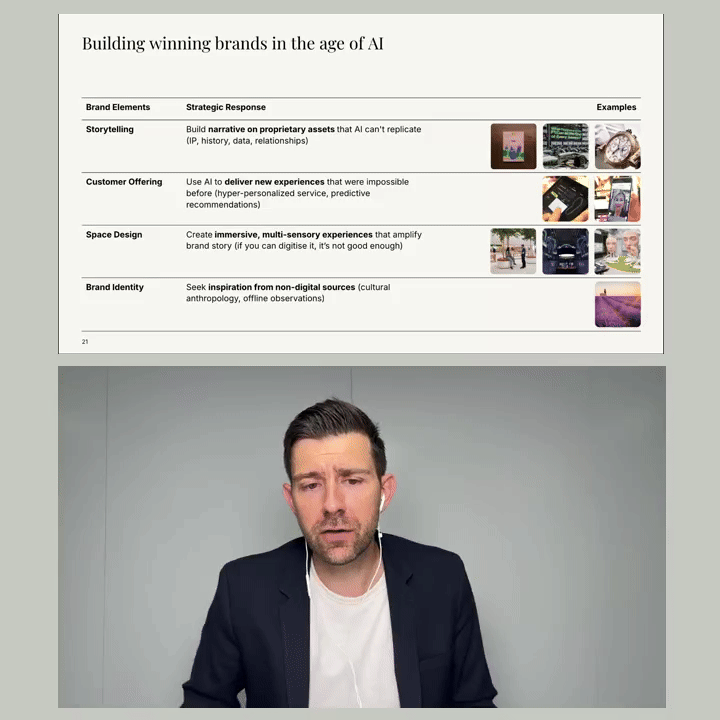4 reasons why storytelling should be a priority
Brand storytelling can be used at any stage in a company’s life: when starting out on a new venture, when repositioning an existing business, or when strengthening an established one. Brand storytelling is a strategic tool that aligns all stakeholders around a common understanding of an organisation’s role. Ultimately, storytelling creates value for companies by improving the customer-brand relationship and increasing brand awareness and brand loyalty. Here are four situations in which storytelling can come in handy.

1. Standing out
Millions of brands launch every year. That makes standing out hard. Well-thought-out storytelling helps get customers’ attention and connect with them on an emotional level. Since great stories generate free press and word of mouth, they should be a no-brainer for start-ups with limited resources.
Take Beyond Meat, a Los Angeles-based producer of meat substitutes. Perhaps surprisingly, the main focus of their story is not sustainability. Instead, they claim to offer “meat without guilt”, a tasty junk-food experience that doesn’t harm animals or the environment.
With this approach, and compared to traditional healthy or sustainable food brands generally seen as less tasty or less fun, Beyond Meat was able to reach out to meat-loving Americans directly and grow exponentially by partnering with large fast- food chains such as Burger King.

Storytelling acts as a “stabilising agent” in periods of organisational transitioning.
2. Business transformation
Digitalisation – alongside the Covid-19 pandemic – is prompting companies across industries to reinvent their business models and their processes. As they transform, companies must also evolve their narrative so clients and business partners understand what it is they stand for.
Storytelling acts as a “stabilising agent” in periods of organisational transitioning. Take Geneva-based IEM Group, historically a manufacturer of parking automats, now under pressure to reinvent their business as their star product becomes obsolete.
The company story speaks about “developing solutions for smart cities” and not just building machines – a story that is linked to their past while giving an aspirational vision of its future.

Stories are far more powerful than communication standards and guidelines – because they are easy to communicate and easy to remember.
3. Organisational alignment
A key challenge in brand communication is ensuring that your message doesn’t get diluted and distorted by your teams even before reaching the end recipient.
Stories are far more powerful than communication standards and guidelines – because they are easy to communicate and easy to remember. Heritage brands, such as the ones owned by luxury giant LVMH, have fully internalised this learning. New recruits at Guerlain or Moët & Chandon are extensively briefed on their brand’s history and products, and product training is offered not just to the Sales and Marketing teams, but to support functions as well.

4. Talent acquisition
A global study from media agency Havas found that “meaningful brands” outperform the stock market by 206%. “Meaningful brands” articulate a purpose that goes beyond making money. Conveying a sense of purpose attracts, engages and retains talents – millennials in particular.
By contextualising an organisation’s activity, storytelling clarifies its reason for being. It links their higher purpose to their working philosophy and modus operandi. This is why some companies not generally seen as “glamorous,” such as EY or SAP, can attract top talents with their “great places to work” reputation.
Conversely, the strong aspirational pull of companies like Tesla or Ubisoft can lure top talents despite numerous workplace complaints over the years.


4 reasons why storytelling should be a priority



4 reasons why storytelling should be a priority
Brand storytelling can be used at any stage in a company’s life: when starting out on a new venture, when repositioning an existing business, or when strengthening an established one. Brand storytelling is a strategic tool that aligns all stakeholders around a common understanding of an organisation’s role. Ultimately, storytelling creates value for companies by improving the customer-brand relationship and increasing brand awareness and brand loyalty. Here are four situations in which storytelling can come in handy.
1. Standing out
Millions of brands launch every year. That makes standing out hard. Well-thought-out storytelling helps get customers’ attention and connect with them on an emotional level. Since great stories generate free press and word of mouth, they should be a no-brainer for start-ups with limited resources.
Take Beyond Meat, a Los Angeles-based producer of meat substitutes. Perhaps surprisingly, the main focus of their story is not sustainability. Instead, they claim to offer “meat without guilt”, a tasty junk-food experience that doesn’t harm animals or the environment.
With this approach, and compared to traditional healthy or sustainable food brands generally seen as less tasty or less fun, Beyond Meat was able to reach out to meat-loving Americans directly and grow exponentially by partnering with large fast- food chains such as Burger King.

Storytelling acts as a “stabilising agent” in periods of organisational transitioning.
2. Business transformation
Digitalisation – alongside the Covid-19 pandemic – is prompting companies across industries to reinvent their business models and their processes. As they transform, companies must also evolve their narrative so clients and business partners understand what it is they stand for.
Storytelling acts as a “stabilising agent” in periods of organisational transitioning. Take Geneva-based IEM Group, historically a manufacturer of parking automats, now under pressure to reinvent their business as their star product becomes obsolete.
The company story speaks about “developing solutions for smart cities” and not just building machines – a story that is linked to their past while giving an aspirational vision of its future.

Stories are far more powerful than communication standards and guidelines – because they are easy to communicate and easy to remember.
3. Organisational alignment
A key challenge in brand communication is ensuring that your message doesn’t get diluted and distorted by your teams even before reaching the end recipient.
Stories are far more powerful than communication standards and guidelines – because they are easy to communicate and easy to remember. Heritage brands, such as the ones owned by luxury giant LVMH, have fully internalised this learning. New recruits at Guerlain or Moët & Chandon are extensively briefed on their brand’s history and products, and product training is offered not just to the Sales and Marketing teams, but to support functions as well.

4. Talent acquisition
A global study from media agency Havas found that “meaningful brands” outperform the stock market by 206%. “Meaningful brands” articulate a purpose that goes beyond making money. Conveying a sense of purpose attracts, engages and retains talents – millennials in particular.
By contextualising an organisation’s activity, storytelling clarifies its reason for being. It links their higher purpose to their working philosophy and modus operandi. This is why some companies not generally seen as “glamorous,” such as EY or SAP, can attract top talents with their “great places to work” reputation.
Conversely, the strong aspirational pull of companies like Tesla or Ubisoft can lure top talents despite numerous workplace complaints over the years.


Download4 reasons why storytelling should be a priority
1. Standing out
Millions of brands launch every year. That makes standing out hard. Well-thought-out storytelling helps get customers’ attention and connect with them on an emotional level. Since great stories generate free press and word of mouth, they should be a no-brainer for start-ups with limited resources.
Take Beyond Meat, a Los Angeles-based producer of meat substitutes. Perhaps surprisingly, the main focus of their story is not sustainability. Instead, they claim to offer “meat without guilt”, a tasty junk-food experience that doesn’t harm animals or the environment.
With this approach, and compared to traditional healthy or sustainable food brands generally seen as less tasty or less fun, Beyond Meat was able to reach out to meat-loving Americans directly and grow exponentially by partnering with large fast- food chains such as Burger King.

Storytelling acts as a “stabilising agent” in periods of organisational transitioning.
2. Business transformation
Digitalisation – alongside the Covid-19 pandemic – is prompting companies across industries to reinvent their business models and their processes. As they transform, companies must also evolve their narrative so clients and business partners understand what it is they stand for.
Storytelling acts as a “stabilising agent” in periods of organisational transitioning. Take Geneva-based IEM Group, historically a manufacturer of parking automats, now under pressure to reinvent their business as their star product becomes obsolete.
The company story speaks about “developing solutions for smart cities” and not just building machines – a story that is linked to their past while giving an aspirational vision of its future.

Stories are far more powerful than communication standards and guidelines – because they are easy to communicate and easy to remember.
3. Organisational alignment
A key challenge in brand communication is ensuring that your message doesn’t get diluted and distorted by your teams even before reaching the end recipient.
Stories are far more powerful than communication standards and guidelines – because they are easy to communicate and easy to remember. Heritage brands, such as the ones owned by luxury giant LVMH, have fully internalised this learning. New recruits at Guerlain or Moët & Chandon are extensively briefed on their brand’s history and products, and product training is offered not just to the Sales and Marketing teams, but to support functions as well.

4. Talent acquisition
A global study from media agency Havas found that “meaningful brands” outperform the stock market by 206%. “Meaningful brands” articulate a purpose that goes beyond making money. Conveying a sense of purpose attracts, engages and retains talents – millennials in particular.
By contextualising an organisation’s activity, storytelling clarifies its reason for being. It links their higher purpose to their working philosophy and modus operandi. This is why some companies not generally seen as “glamorous,” such as EY or SAP, can attract top talents with their “great places to work” reputation.
Conversely, the strong aspirational pull of companies like Tesla or Ubisoft can lure top talents despite numerous workplace complaints over the years.









